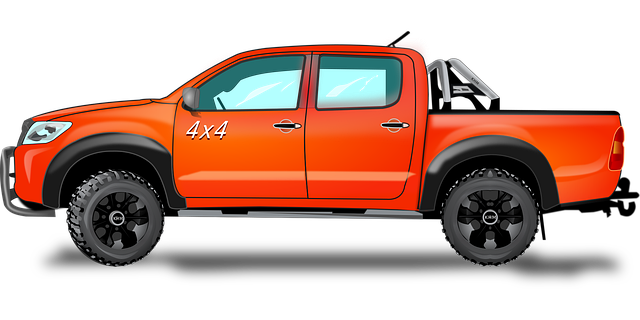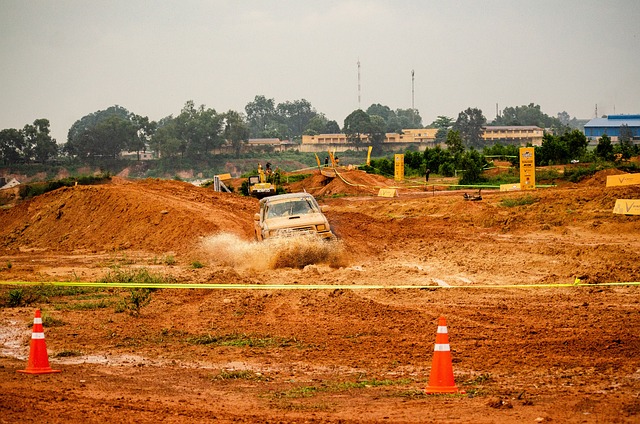ABS sensors in RGV-4×4 accessories are essential for off-road safety and performance, preventing wheel lockup on rugged terrain. These sensors monitor wheel speed, improving stability and control in challenging conditions. Regular maintenance and proper installation ensure optimal functionality, while selecting the right sensors for your vehicle model enhances braking performance.
ABS (Anti-lock Braking System) sensors play a crucial role in enhancing safety for RGV-4×4 vehicles. This article offers an in-depth look at these essential components, providing a comprehensive guide for owners and enthusiasts of RGV-4×4 accessories. From understanding the basic function to troubleshooting common issues, we explore key aspects. Learn about the benefits ABS sensors bring to your vehicle’s braking system and discover how to choose, install, and maintain them for optimal performance in off-road adventures.
- Understanding ABS Sensors: A Basic Overview
- The Role of ABS Sensors in RGV-4×4 Vehicles
- Key Functions and Benefits of ABS Sensors
- Common ABS Sensor Issues and Troubleshooting
- Choosing the Right ABS Sensors for Your RGV-4×4 Accessories
- Installation and Maintenance Tips for Optimal Performance
Understanding ABS Sensors: A Basic Overview

ABS sensors are an essential component in modern vehicles, particularly those with 4×4 capabilities. These sensors play a critical role in enhancing safety and optimizing driving experience, especially on rugged terrain. ABS stands for Anti-lock Braking System, a technology designed to prevent wheels from locking up during hard braking, allowing drivers to maintain control even on slippery or uneven surfaces.
Each sensor is strategically placed near the wheels and monitors wheel speed data. By detecting any significant difference in rotation between wheels, the sensors trigger the ABS system to adjust brake pressure individually, preventing wheels from skidding. This is particularly useful for off-road enthusiasts who often encounter challenging terrain with ruts, rocks, and varying ground conditions. RGV-4×4-accessories equipped with advanced ABS sensors provide improved stability and control, ensuring a safer and more enjoyable driving experience in demanding environments.
The Role of ABS Sensors in RGV-4×4 Vehicles

ABS sensors play a vital role in enhancing safety features of RGV-4×4 vehicles, making them indispensable accessories for off-road enthusiasts and professionals alike. These sensors monitor wheel speed, providing crucial data to the Anti-lock Braking System (ABS). By detecting and responding to wheel lockup during braking, ABS sensors prevent skidding and maintain vehicle control on uneven terrain or in emergency stops. This is particularly important for RGV-4x4s, which often navigate challenging off-road conditions where traction can be tenuous.
Moreover, ABS sensors contribute to improved performance by enabling precise control of individual wheels. This allows drivers to steer more effectively while descending slopes or navigating tight turns, enhancing overall handling and stability. Incorporating ABS sensors into RGV-4×4 accessories ensures that these powerful vehicles remain controllable and safe under diverse driving conditions, making them versatile tools for various applications from rugged terrain exploration to commercial hauling.
Key Functions and Benefits of ABS Sensors

ABS (Anti-lock Braking System) sensors play a pivotal role in enhancing vehicle safety, especially in challenging driving conditions. These sensors are crucial components of modern automotive systems, designed to prevent wheel lockup during braking, allowing for better control and reduced skidding. By continuously monitoring wheel speed, ABS sensors detect when wheels are about to lock up and activate the braking pressure individually, ensuring each wheel maintains sufficient traction.
For off-road enthusiasts and 4×4 owners, ABS sensors offer numerous advantages. In rugged terrain, where ground conditions can be unpredictable, these sensors help maintain stability and control. RGV-4×4 accessories that incorporate advanced ABS technology enable drivers to navigate treacherous paths with confidence, knowing their vehicle’s braking system is optimized for maximum performance. This ensures a safer driving experience, even on rough or slippery surfaces.
Common ABS Sensor Issues and Troubleshooting

ABS sensors, crucial components in modern vehicles, can encounter various issues that impact their performance and overall vehicle safety. One common problem is sensor corrosion or buildup, which can occur over time due to exposure to moisture and road conditions. This often manifests as a loss of signal strength, leading to faulty ABS warnings on the dashboard. In such cases, cleaning the sensors with specialized solutions or replacing damaged parts is essential for accurate wheel speed readings.
Another frequent issue involves sensor misalignment or damage caused by rough roads or accidents. Misaligned sensors can provide false data, affecting the vehicle’s ability to accurately detect and respond to sudden braking events. If a sensor is physically damaged, it might need to be recalibrated or replaced immediately to ensure the safety and effectiveness of the ABS system. RGV-4×4-accessories that offer diagnostic tools can aid in identifying these issues early on, enabling prompt troubleshooting and maintaining optimal vehicle performance.
Choosing the Right ABS Sensors for Your RGV-4×4 Accessories

When equipping your RGV-4×4 accessories with ABS sensors, it’s crucial to select the right ones for optimal performance and safety. Look for sensors designed specifically for off-road vehicles, as these will be more durable and able to withstand harsh conditions. Ensure they’re compatible with your vehicle’s make and model, and consider sensors that offer advanced features like precise pressure readings and real-time data monitoring.
The right ABS sensors can significantly enhance your RGV-4×4’s braking capabilities, especially during challenging terrain navigation. They provide vital information to the anti-lock braking system, allowing it to adjust brake pressure individually on each wheel, preventing skidding and maintaining control. Thus, investing in high-quality ABS sensors is a game-changer for enhancing both performance and safety when venturing off the beaten path with your RGV-4×4 accessories.
Installation and Maintenance Tips for Optimal Performance

When installing ABS sensors, ensuring proper alignment and secure connections is paramount for optimal performance. These sensors play a crucial role in your vehicle’s anti-lock braking system (ABS), providing real-time wheel speed data to prevent wheel lockup during hard braking. Misalignment or loose connections can disrupt this critical signal transmission, leading to reduced braking efficiency or even system failure. Therefore, using the right tools and following manufacturer guidelines is essential for accurate installation.
Regular maintenance of ABS sensors is equally vital. Over time, these sensors can accumulate dirt, dust, or corrosion on their ports and wiring. Such contaminants may interfere with signal integrity. A simple cleaning routine, including inspecting connections for any damage and tightening loose nuts, can go a long way in maintaining peak performance. Additionally, checking for proper functioning during routine brake inspections ensures that your ABS system remains reliable, enhancing safety features offered by your rgv-4×4-accessories.
ABS sensors play a pivotal role in enhancing safety and control for RGV-4×4 vehicles. By understanding their functions, addressing common issues, and choosing suitable sensors for your RGV-4×4 accessories, you can ensure optimal performance and peace of mind while driving off-road. Regular maintenance and up-to-date knowledge will help keep these crucial components in top shape, making each journey more enjoyable and secure.



